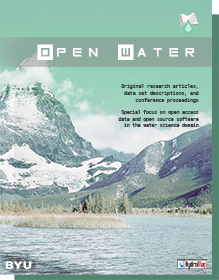Article Title
Water Sharing in Eastern-Nile River Basin: A Geopolitical Perspective of Conflict to Cooperation
Keywords
Eastern-Nile Basin, Water sharing, Conflict, Geopolitics, Need and opportunities
Abstract
Water is an indispensable natural resource that the countries of the Nile river basin possess. Its efficient and optimal use would not only help countries of the Nile river basin to build a strong economy but also substantially contribute to the growing water requirements of the countries, as water is becoming an increasingly scarce resource in the contemporary period. Distribution of river water is a complicated issue especially when a river passes through a number of countries. This study has investigated the resolving (win-win situation) of water-sharing conflict among the four riparian countries of the Eastern-Nile basin: Ethiopia, South Sudan, Sudan and Egypt.
The study is based on the analytical method, evaluation of the observable trends in river water sharing principles and methods as applicable in the case of the Nile river basin in general and Eastern-Nile in particular. Governmental policy stands of riparian countries on water sharing of Nile river basin will be compared with the countries of upstream and downstream Nile river basin through case study method. For this study, primary and secondary data is collected and processed to give them meaning and extract quality information through the statistical diagrams and cartographic techniques.
This study has been an attempt to probe the problems and prospects of cooperation between these countries over the complex issue of Nile water sharing. Thereby, paper has attempted to analyze the role of geographical determinants that influence the negotiations between the four riparian countries that have impeded implementation of equitable water sharing scheme, and the policy issues of the upstream and downstream riparian countries, in this case study, mainly Ethiopia, South Sudan, Sudan and Egypt dictated by their domestic compulsions. This research paper unpack the comparative advantages of the four riparian countries: it emphasises that Sudan and South Sudan should engage in developments of irrigation, agricultural engagements and biodiversity conservation; Ethiopia in small and medium scale hydro-power generation and water conservation; while Egypt in industry and capacity building know how.
BYU ScholarsArchive Citation
Meena, Muraree Lal
(2015)
"Water Sharing in Eastern-Nile River Basin: A Geopolitical Perspective of Conflict to Cooperation,"
Open Water Journal: Vol. 3:
Iss.
1, Article 13.
Available at:
https://scholarsarchive.byu.edu/openwater/vol3/iss1/13
